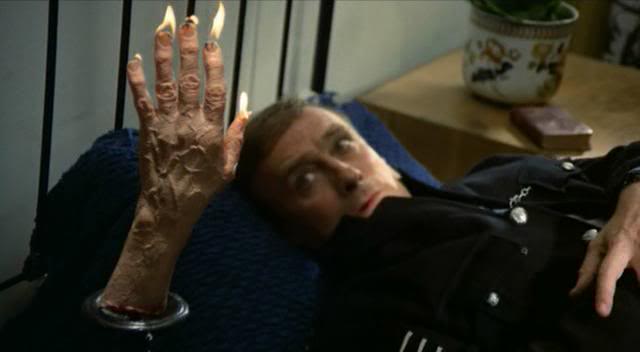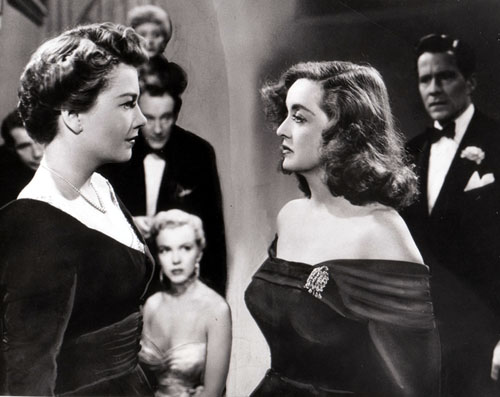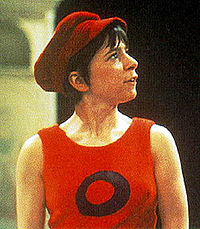Directed by Robin Hardy
Written by Anthony Shaffer
UK, 88 min.
In The Wicker Man, a small island community turns to paganism as a means of coping with failing crops. Framing regression as progression, they clash with the repressed Sergeant Howie, a steadfast believer in Jesus Christ. He is investigating the disappearance and apparent murder of a young girl. The townspeople deny her existence but evidence begins to mount and a disturbing conspiracy emerges.
Hardy’s subversive attack on religious belief is blessed and necessitated by his tongue in cheek approach. It misdirects our focus on religion, mirroring its invisible pervasiveness in the creation of structure and identity. The Wicker Man tackles apparently divergent but ultimately mutually dependent sacred cows of institutional religion and the counter-culture movement. The Christian devotion to the body of Christ and the outright refusal to indulge in the pleasures of the flesh are not so different from the extreme sexual hedonism of the pagans and their phallic worship. The total repression of desire with the total indulgence in it represents two extremes that are equally passionate in their emptiness. As they put faith in invisible Gods, they deny personal responsibility and individual growth.
Britt Ekland evocatively slinking across a wall, naked and extended, is a titillating parody of desire. Dancing and singing intermittently, her very aura constipating the poor officer of the law. Her outstretched arms not unlike those of the crucifixion, we begin to question her liberation. Does the soul’s freedom lie in the liberation of the body or mind? The abandonment of physical or moral desire? Sex could have liberated Seargeant Howie, his chasteness being a key factor in being an ideal candidate for sacrifice. Sex becomes the ultimate power, a symbol of life, love and death.
intermittently, her very aura constipating the poor officer of the law. Her outstretched arms not unlike those of the crucifixion, we begin to question her liberation. Does the soul’s freedom lie in the liberation of the body or mind? The abandonment of physical or moral desire? Sex could have liberated Seargeant Howie, his chasteness being a key factor in being an ideal candidate for sacrifice. Sex becomes the ultimate power, a symbol of life, love and death.
Steeped in irony, the film plainly and humorously indicts humanity’s overzealous fixation on the unknown. Horror at its best relies on uncertainty, but in this film this is undermined by the frenzied attempt to rationalize it. Robin Hardy’s outright refusal to engage in the usual horror tropes only adds to the film’s unnerving mood. It has often been said that The Wicker Man is more musical than horror, as if the two genres are mutually exclusive. Where would Psycho be without a screeching violin? Or The Wizard of Oz without the constant threat of death? Both are genres firmly planted in the imagination; they are fantasies that allow us to finally express our biggest yearnings and greatest fears. In both genres, it’s as if our normal venues of communication is stilted and it is only through song or scream that we can truly express ourselves.
Funny and haunting, The Wicker Man remains a vital work in subversion nearly forty years after its initial release. Its tonal landscape is hinged totally on its offbeat modernity – Hardy’s vision defies expectations, painting an engaging portrait of the contemporary moral anatomy. Man as the hare becomes the vital symbol: prolific but vulnerable, the hare is a beautiful parasite and an easy victim. It embodies our natural compulsion towards survival through sex, the self-effacing desire to procreate as the simplest means of attaining immortality. Surrounded by flames, Sergeant Howie’s final moments have him frighteningly denying his fear of death. This is a real end, and the aching knowledge that this fear brought upon his doom weighs heavy on the soul.
Justine Smith







